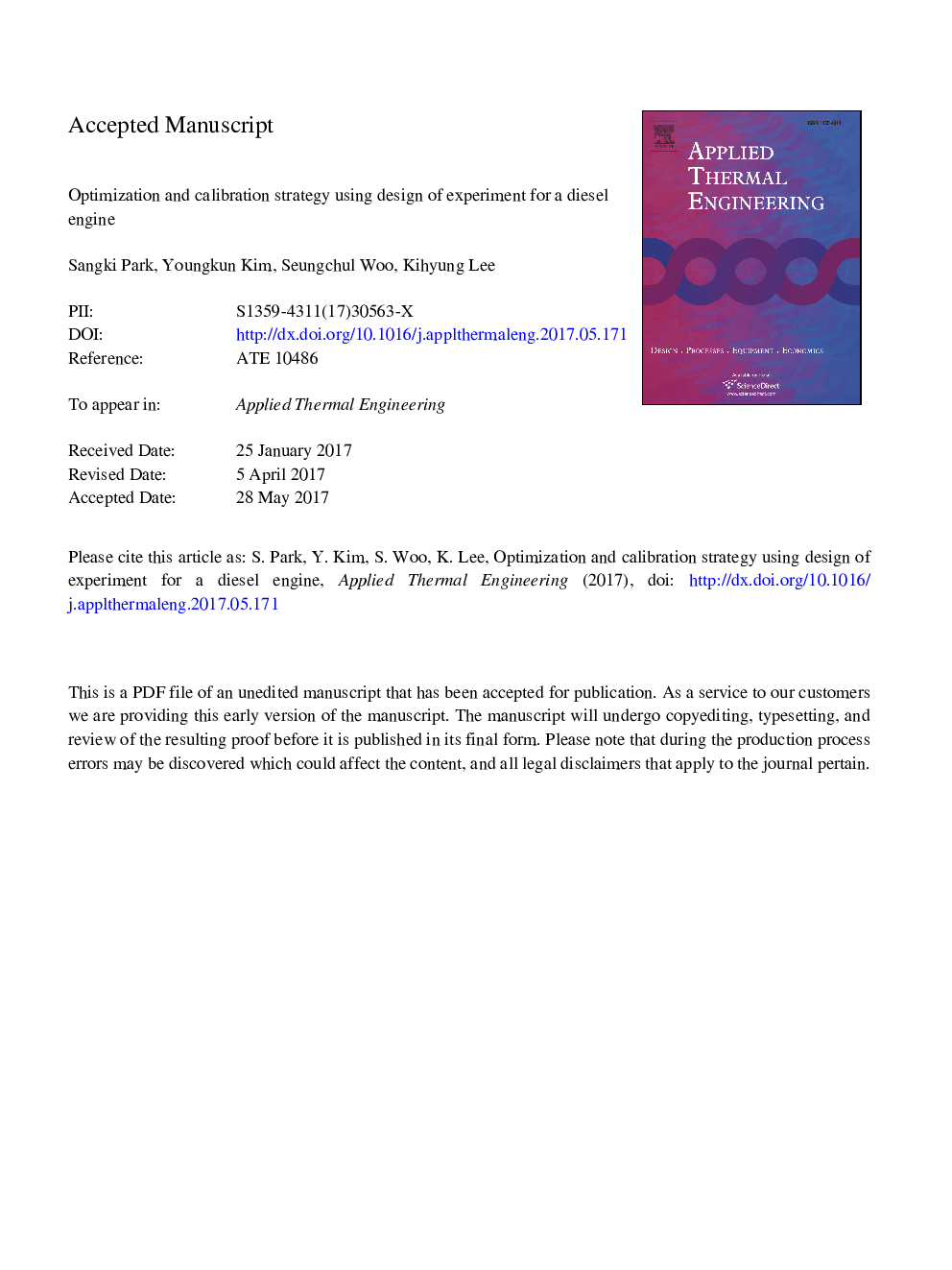| Article ID | Journal | Published Year | Pages | File Type |
|---|---|---|---|---|
| 4990569 | Applied Thermal Engineering | 2017 | 41 Pages |
Abstract
Numerous official cautionary statements on insufficient fossil fuels and global warming have been issued. Therefore, attention on improving fuel efficiency and reducing exhaust emissions has increased. In particular, in the case of diesel engines, the number of control parameters has been increased by after-treatment systems. However, the calibration of all these parameters is complex and requires detailed understanding. Therefore, the present method of diesel engine calibration is time-consuming and expensive, creating a highly challenging environment for engineers. Considering this, a new and improved engine calibration method is required. In this study, engine modeling, predictability, and accuracy were focused upon using design of experiment (DOE). In addition, intake and fuel control parameters were optimally calibrated using regression models and numerical optimization. Through these procedures, the number of test measurements could be substantially reduced, and an efficient method of engine calibration is proposed.
Related Topics
Physical Sciences and Engineering
Chemical Engineering
Fluid Flow and Transfer Processes
Authors
Sangki Park, Youngkun Kim, Seungchul Woo, Kihyung Lee,
